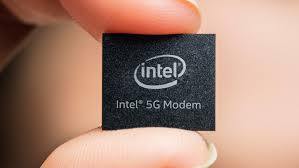Qualcomm, Sony losing important iPhone business starting next year

Sony has been supplying CMOS image sensors (CIS) to Apple for the iPhone going back years. Samsung has been hoping to get some of Apple's business with its ISOCELL image sensors. The latter owns a 29% market share in the smartphone industry compared to Sony whose IMX image sensors have a leading 54% slice of the pie. According to TF International's all-knowing Apple analyst Ming-Chi Kuo, Samsung will get a chance to supply Apple with image sensors for the iPhone, but not until 2026.
Kuo writes on "X" that Samsung will provide Apple with 1/2.6-inch 48MP ultra-wide CMOS image sensors for iPhone 18 Pro models as soon as 2026 The analyst says that Samsung has created a dedicated team to work with Apple to help supply its rival with CMOS image sensors for future iPhone models. The analyst's tweet is dated today. If Kuo is correct, Sony will no longer be the exclusive supplier of image sensors to the iPhone.
"Samsung is expected to begin shipping 1/2.6-inch 48MP ultra-wide CMOS image sensors (CIS) to Apple for iPhones as early as 2026, breaking Sony's years-long monopoly on supplying CIS to Apple. To this end, Samsung has established a dedicated team to serve Apple."-Ming-Chi Kuo, TF International Apple analyst"
Sony isn't the only long-time iPhone supplier that might see its business with Apple drop off. Kuo, in a separate tweet, says that next year Qualcomm's 5G modem chip will finally be replaced by Apple's own in-house 5G modem in some iPhone models. The analyst says that this will happen on two iPhone models in 2025, the iPhone SE 4 and the new iPhone 17 Slim model that will replace the iPhone Plus in 2025.

Apple pushed Intel to build a 5G modem chip but the deadline could not be met
Apple had been involved in litigation with Qualcomm over patent infringements and other issues in 2018 and that year iPhone models used Intel modems exclusively. Apple wanted Intel to produce a 5G modem in time for the first 5G iPhones that would be released in 2020. When it became apparent that Intel would not meet Apple's deadline, the company threw cash at Qualcomm to settle all litigation, license Qualcomm's 5G modem chip, and order the chips for the iPhone.
"Apple is accelerating its move away from reliance on Qualcomm. In 2025, two new iPhone models will ditch Qualcomm's 5G chips and adopt Apple's in-house 5G chips: the iPhone SE4 (1Q25) and the ultra-slim iPhone 17 (3Q25)."-Ming-Chi Kuo, TF International Apple analyst"
Last year Apple and Qualcomm signed an extension that runs through 2026 after Apple couldn't finish work on its own 5G modem. A report at the time said that even after all of the work Apple put into the 5G modem chip, the component was so large that it would take up half of the internal space of an iPhone. This failure forced Apple to sign the extension with Qualcomm.
Originally, the plan was for Apple to debut its in-house 5G modem chips with last year's iPhone 15 series. But if Kuo is right, and he often is, the component will launch with the iPhone SE 4 next spring.










Things that are NOT allowed: